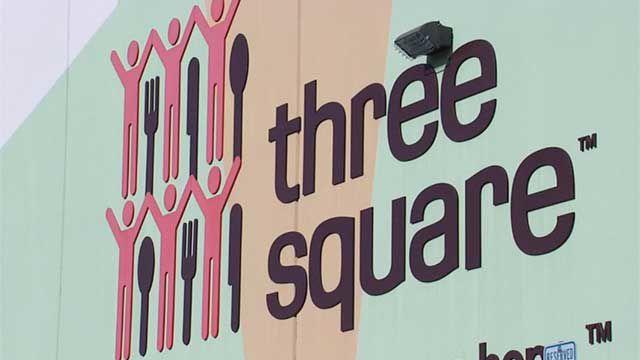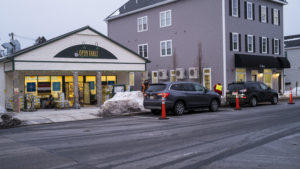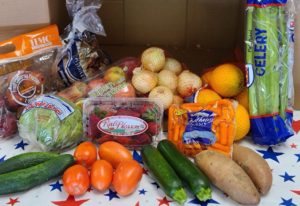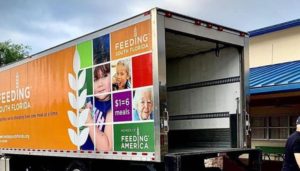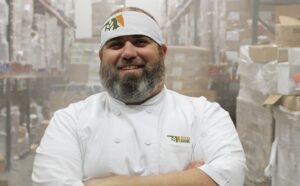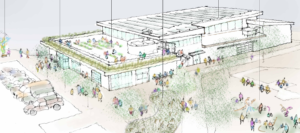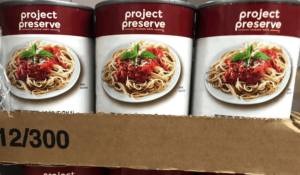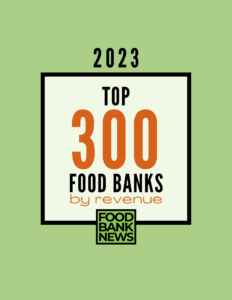To protect the health of its senior volunteers during the Covid-19 crisis, Three Square Food Bank has instituted a top-to-bottom reorg of its network of about 160 pantries and agencies.
In the space of about six hours on Monday, March 16, the Las Vegas-based food bank devised a plan that emphasizes food distribution from 43 emergency sites chosen for their ability to maximize the food bank’s reach. The plan takes advantage of mobile distribution sites and large parking lots at shuttered schools and casinos, while phasing out smaller pantries typically run by senior volunteers.
Three Square’s aggressive move comes as food banks and pantries across the country are struggling with how to protect the health of their volunteers, particularly seniors who are seen as being most vulnerable to the virus.

“We know their health and safety is important,” Jodi Tyson, Vice President of Strategic Initiatives at Three Square, said of the food bank’s senior volunteers, many of whom had reached out expressing a desire for the food bank to take care of their clients, so they could retreat to the safety of their homes.
Three Square is not ordering the senior-run pantries to shutter, but is encouraging them to wind down and is redirecting their food to other places. The pantries may choose in the short term whether or not to distribute the food they already have. “We felt a sense of responsibility to allow the agencies to make the best decision for themselves,” Tyson said.
Under the streamlined plan, Three Square is only using nine of its larger, more professionally staffed agency partners to distribute food. In addition, it has created new distribution points in the parking lots of three casinos located in residential areas, as well as 21 area schools. Finally, one of the food bank’s largest mobile distribution partners, Just One Project, is hosting ten mobile pantry sites at various church sites.
Three Square worked with its local school district to identify the best schools for distribution, taking into account need and location. It already had been working with eight of the 21 schools, providing them with mobile pantries and weekend backpacks. While previously only school kids could get food at those eight sites, now anyone can. “You don’t have to have a child to get food,” Tyson noted.
In addition, 15 schools will continue to provide school lunch and breakfast to students as they did before, except through food distribution “pods,” versus the cafeteria. At these sites, a school-age child must be present to receive the food, to comply with federal regulations.
The Just One Project will use food provided by Three Square, but will be in charge of organizing volunteers and determining how much food to distribute to each family. Normally, Just One Project activates a large number of volunteers for a Saturday mobile distribution. Now it will run distributions Tuesday through Saturday, using a smaller number of volunteers at each location. “We don’t want so many volunteers at a site, so we’re asking them to divide and conquer,” Tyson explained.
On Tuesday, March 17, without any advertising, about 130 families showed up for the first mobile distributions at three of the new school sites. Twenty-four hours later, 350 families came to a distribution at a single casino location. “It will continue to grow,” Tyson predicted.
While clients may find that there is less access to food at the places they normally go to, the streamlined network — with its emphasis on mobile delivery — is very efficient, while also protecting senior health. Tyson noted that many of the smaller senior-run pantries were only open once a month anyway.
The revamped network “very carefully places” the 43 emergency feeding sites in each of the five regions of the greater Las Vegas valley, she noted. “In every region, there’s some kind of pantry everyday.”
